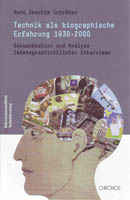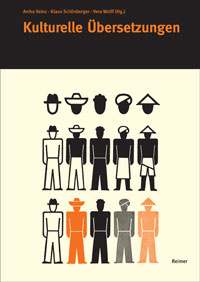Forschungskolleg goes Wiener Rathaus: "Notes on the Biographical Meaning of Games and Online-Games"
Gerrit Herlyn und Helle Meister, wissenschaftliche Mitarbeiter am Institut für Volkskunde /Kulturanthropologie und Mitglieder des Forschungskollegs Kulturwissenschaftliche Technikforschung, werden am 17. Oktober 2008 erste Ergebnisse des Projekts „Spielkulturen. Zur biographischen Bedeutung des Spielens und des Online-Spielens im digitalen Alltag“ auf der Fachtagung „Future and Reality of Games“ (F.R.O.G.) diskutieren.
Die Tagung findet vom 17. bis 19. Oktober 2008 im Wiener Rathaus statt.
Im Vortrag wird es zunächst darum gehen, das methodische Vorgehen (Biographische Interviews) und einzelne Analyseschritte vorzustellen. Vor allem sollen die durch biographische Interviews gewonnenen Einsichten in den Zusammenhang zwischen Spielen respektive Onlinespielen und Biographien verdeutlicht und aus dieser Perspektive gewonnene (Zwischen-)Ergebnisse zur Nutzung und Aneignung von Technik, Computer- und Onlinespielen durch Ältere und Bedeutsamkeit des Spielens zu vorgestellt werden.
Abstract:
Notes on the Biographical Meaning of Games and Online-Games
The usual stereotype of the player of video games is that as young and male. That players become older and video games abide in peoples´ lives is still a new perspective on video games. This is the starting point of our research project “Cultures of gaming. Towards the biographical meaning of games and online-games” which focuses the meaning of games and video games in a biographical viewpoint. We are comparing the experiences and reflections in different age groups with a main focus on players that are approximately 60 years or older.
By using the method of biographical interviews we are centring the context between play, video games, the use of technology and the life story. In our lecture we discuss some results of the analysis of the biographical interviews. First we point out the role of the different modes of speaking about games by showing some typical patterns that were frequently used by the interviewed persons by talking about games. The second top is about the relation between games and biography showing some examples how games become important for life history. The third point deals with the different evaluations of games and the preferences that were expressed by the interviewed persons. In a final step we ask in how far the adoption of technology plays an important role - especially for older people - for their open-mindedness towards video games.
Zum Programm der Tagung
Die Tagung findet vom 17. bis 19. Oktober 2008 im Wiener Rathaus statt.
Im Vortrag wird es zunächst darum gehen, das methodische Vorgehen (Biographische Interviews) und einzelne Analyseschritte vorzustellen. Vor allem sollen die durch biographische Interviews gewonnenen Einsichten in den Zusammenhang zwischen Spielen respektive Onlinespielen und Biographien verdeutlicht und aus dieser Perspektive gewonnene (Zwischen-)Ergebnisse zur Nutzung und Aneignung von Technik, Computer- und Onlinespielen durch Ältere und Bedeutsamkeit des Spielens zu vorgestellt werden.
Abstract:
Notes on the Biographical Meaning of Games and Online-Games
The usual stereotype of the player of video games is that as young and male. That players become older and video games abide in peoples´ lives is still a new perspective on video games. This is the starting point of our research project “Cultures of gaming. Towards the biographical meaning of games and online-games” which focuses the meaning of games and video games in a biographical viewpoint. We are comparing the experiences and reflections in different age groups with a main focus on players that are approximately 60 years or older.
By using the method of biographical interviews we are centring the context between play, video games, the use of technology and the life story. In our lecture we discuss some results of the analysis of the biographical interviews. First we point out the role of the different modes of speaking about games by showing some typical patterns that were frequently used by the interviewed persons by talking about games. The second top is about the relation between games and biography showing some examples how games become important for life history. The third point deals with the different evaluations of games and the preferences that were expressed by the interviewed persons. In a final step we ask in how far the adoption of technology plays an important role - especially for older people - for their open-mindedness towards video games.
Zum Programm der Tagung
TK-Kolleg - 15. Okt, 15:52
















Trackback URL:
https://technikforschung.twoday.net/stories/5257439/modTrackback